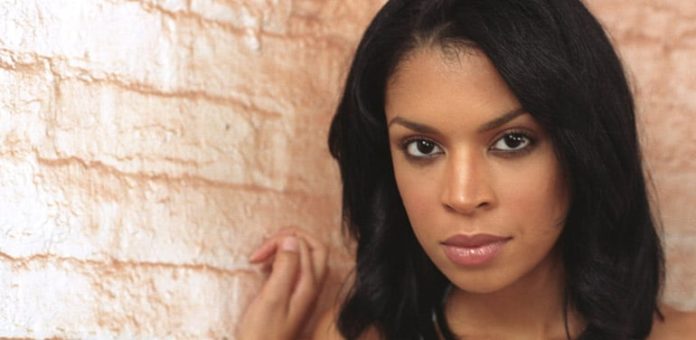Note: Season 1 Spoilers throughout!
This Is Us has wrecked me. I hopped aboard the hype train later than most, but when I did … I bought a season (or series?) pass immediately.
There’s an uncanny moment in life when you’re introduced to something that you never knew you needed until you experience it. In this show, that “something” is Beth Pearson (Susan Kelechi Watson). Yes, the breakout star is unanimously Sterling K. Brown and his Emmy-winning portrayal of Randall Pearson, but I must set aside a special reverence for one of my favorite black female characters on television right now.
Now, I say “black female character” with firm intention. Beth is — without a doubt—a fascinating and well-written character, period, but her unapologetic blackness is not lost on me. And to specify the significance of her image cannot and will not escape me. The word “diversity” is thrown around a lot in this industry, but there is something to be said about the authenticity behind the back-patting term.
The layers of Beth enrapture me. Beth is not the neck-rolling caricature of yore, but she also doesn’t suffer fools. She is so black, y’all. The blackness is what I call “subtly loud,” which I appreciate. Her honesty is cutting in such an endearing way, I couldn’t help but love her. Beth is so remarkably real, I feel as if I can touch her. There’s a tangibility to her character in a medium that is wholly intangible—I can feel the fire behind her cutting eyes; I can feel the bubbling of her gut as she wars with decisions for her family; I can feel the rumbling of her laugh as she makes a snarky joke.
Black women traipse this bumpy road called life with an Atlas-sized burden on our shoulders. We have to be this and not that; we have to be strong for the good of our culture. However, Beth has been provided the grace to just be her. Yes, she can throw out a great side-eye when the moment calls for her biting truth, but she can also succumb to the unraveling of her own vulnerable character arc.
Then, there’s the aspect of what “black love” is. Though it is easy for us to hold it atop the highest pedestal as something larger-than-life, it is crucial to allow the authenticity—which includes very real and uncomfortable flaws—as well. There is something beautiful in showing the good and the bad; the pretty and the ugly, because it is navigating those turbulent waters and remaining a unit that makes the love so laudable. Not to mention Brown and Watson’s chemistry is fucking flawlessly piercing, from the way they look each other to the way they argue.
There’s one particular scene where Beth was late and suspected she was pregnant. This revelation came the very moment she and Randall were trying to get away from the rigamarole known as parenting. Randall’s body was ready for burgers and bumping guts, but Beth hit him with the hee via “maybe baby” news. The scene played out with a great balance of humor and tension that felt so genuine. The very moment they were counting down until the little birds left the nest so that they could retire, they were possibly faced with another “setback.” Of course, as we now know, the test ended up being negative, but I really valued the fact that they got to explore the battling of emotions they had to contend with on that fancy hotel bathroom floor.
I love every aspect of Beth, but my favorite plotline thus far is her relationship with Randall’s newly found biological father William (Ron Cephas Jones). From the moment she hesitantly took William into her home as an initial sacrifice that undoubtedly proved her love for her husband, I was fascinated by the trajectory of their relationship. What I loved most about her storyline with William is that her character was given her just due — an introduction that was not defined by being Randall’s wife or Tess (Eris Baker) and Annie’s (Faithe Herman) mother, but a woman who can evolve in a way that surprises herself. She had found not only her father-in-law, but her friend. A friend that unmasked many layers that I hope to see more of.
In Beth’s posthumous dedication to William—masterfully portrayed by the treasure that is Watson, who can convey a thousand emotions with just a look—the significance of their relationship and the emotional tattoo that William left on her heart was readily apparent.
In the Season 2 premiere, we get to explore a bit of Beth’s adoption hesitation that contrasts Randall’s hyper excitement to continue his story. We learn in the premiere that despite Randall’s ideal that his adopted parents, Jack (Milo Ventimiglia) and Rebecca Pearson (Mandy Moore) wanted him the moment they saw him, Rebecca had some reservations and eventually warmed up to him. This dynamic definitely brings a complexity to Beth and Randall’s relationship and their identity as parents. And I can’t forget the subtle yet poignant moment where we see that Beth still hangs out at the special “meeting spot” reserved for her and William. This yet another peek into how her relationship with him has been etched into her spirit.
Beth may not be a member of the “Big Three,” but she certainly steals the screen in her own way and I can’t wait to see how the second season gives us a little more of her. As Beth so eloquently said in her homage to William, she is a “fabric of our lives now.” Just as the Pearsons will “remember things as “before William” and “after William,” so will we about Beth.
Beth is us. Beth is me. Beth is love.




